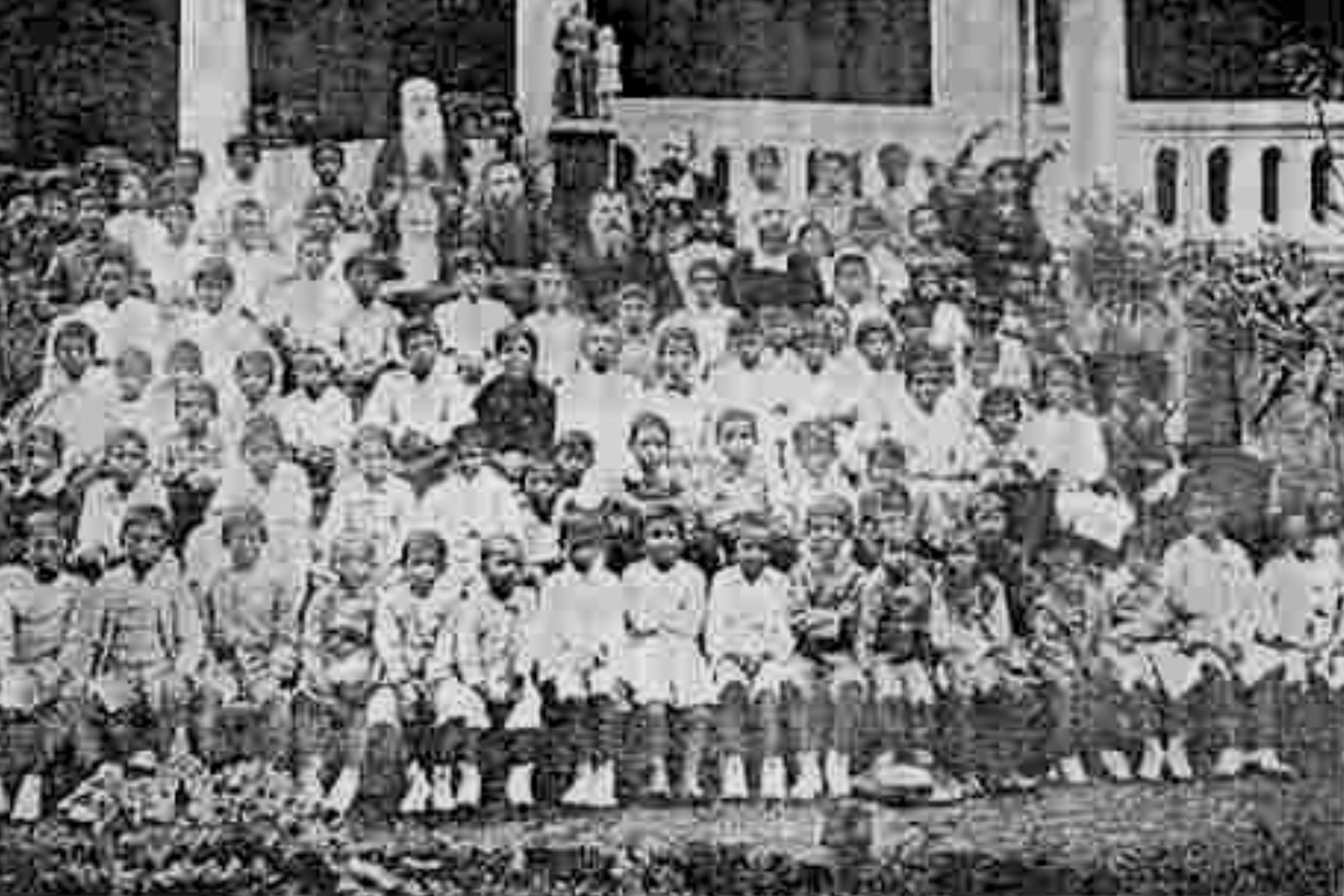De La Salle College, situated at the entrance to the fishing community at Mutwal, where the less – privileged and the marginalized eke out a modest existence, has been a haven of knowledge and inspiration to all and sundry during the last hundred years. It has very faithfully and constructively served thousands and thousands of students, adequately equipping them to face the challenges and exigencies of modern society, with courage and optimism.

De La Salle College was opened on 01 st February 1905 with 22 boys on roll. The object of this School is to give the boys of the Mutwal mission an opportunity to receive an elementary English Education. It is the first “English School” to be set up in this part of Colombo North.
Starting from cadjan sheds and horse stable structures, the school now has a set of good buildings; one section of it has edged towards the cliff, overlooking the Indian Ocean.
The De La Salle Brothers who started this school, and who still have a hand in its management, strive to make their contribution to build up the just society through education of youth. Their guiding principle is that men must learn to live with love – maithriya in Buddhism – because love encompasses all.
To be without love is to be like sounding brass. One must avoid the first place in the table, and banish the scowl of plety from his face. Many may passed out of their hands strive to live up to the golden rule.
De La Salle was at first meant to be a practical school a kind of training school for young Brothers who had accepted the life of the monk-teacher and who were, and are inspired by the Founder’s promise that “those who instruct many unto justice shall shine as stars for all eternity”.
Over the years eminent educationists, both De La Salle Brothers and Secular Teachers have adorned the educational firmament of the College, imparting a sound moral and values education. Apart from teaching them the rudiments, they also have taught them various skills that would ensure their future. Character formation was given the pride of place so that our students would become responsible, trustworthy and productive citizens of the country.
De La Salle College’s persevering efforts to maintain the best traditions of Catholic education in the midst of many local difficulties and to bring the benefits of a Sound Catholic education to the sons of the struggling families of the neighbourhood.
Local difficulties against which the developments of the institution had struggled during those 100 years of her existence: lack of space, want of financial support due to the general poverty of the locality, and continual changes of the government in Sri Lanka.
De La Salle College has rendered valuable service to the people of Mutwal by toning up the rising generation culturally and religiously. In its own way, it has sent its alumni into various walks of life both in the Church and the State.
One may regret it has failed to produce many educated fishermen to re-orientate the fishing industry of Colombo North. The sons of fishermen have gone to other fields of Endeavour, and the fishing industry here is languishing.
True education aims at the full and balanced development of the child so that he may have a happy, peaceful and meaningful life on earth, while preparing for his eternal destiny. In the process, therefore, it turns out citizens of the highest caliber.
This Institution has a proud record of dedicated service to the community since 1905 and marked its Centenary – “De La Salle Siyawasa” in 2005.
Though elaborate plans were made to mark this historical event more fittingly and meaningfully, the unexpected natural disaster, the Tsunami, which shook not only Sri Lanka but the entire South Asian Region – coincided with the Centenary and therefore all plans came to a standstill.
Due to the Tsunami Disaster, the Mutwal – Mattakuliya Beach Area too was badly affected. There were over 600 persons from about 144 displaced families given accommodation at our school for over three weeks. Our buildings, furniture, toilets, etc too were extensively damaged during this period. There are around 20 families still in Refugee Camps and students come to school from this camp situation. There are over 200 students who are victims in various ways are still in school and this is about ¼ of the total student population. We had assisted them in many ways and need to accompany these students and their families to restart and reorganize their school life and family life apart from the needs of the school in its Maintenance, Renovation and Modernization Projects.
It is our hope and prayer that De La Salle College will yield still more abundant fruits for the glory of God and the welfare of Sri Lanka’s citizens.
